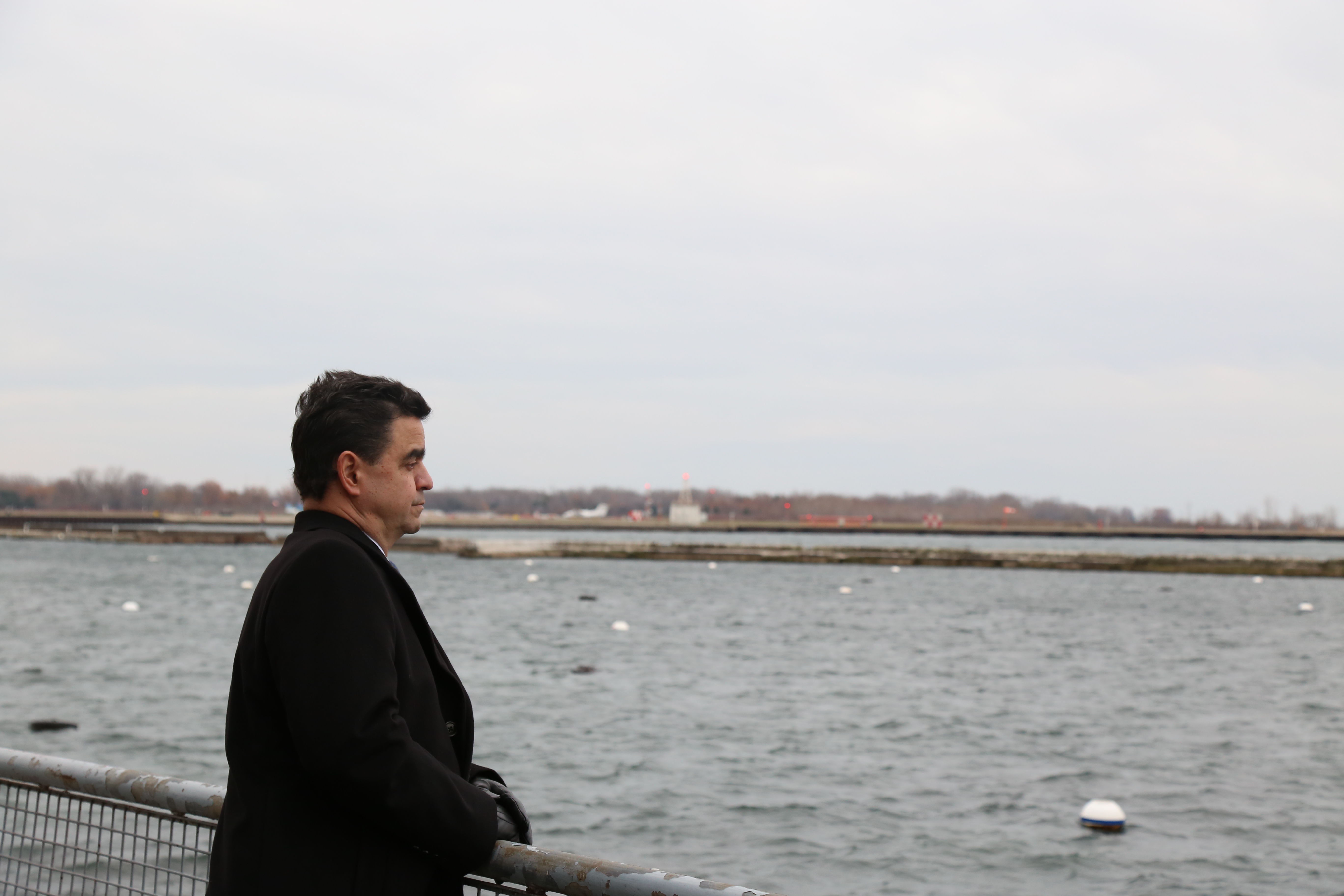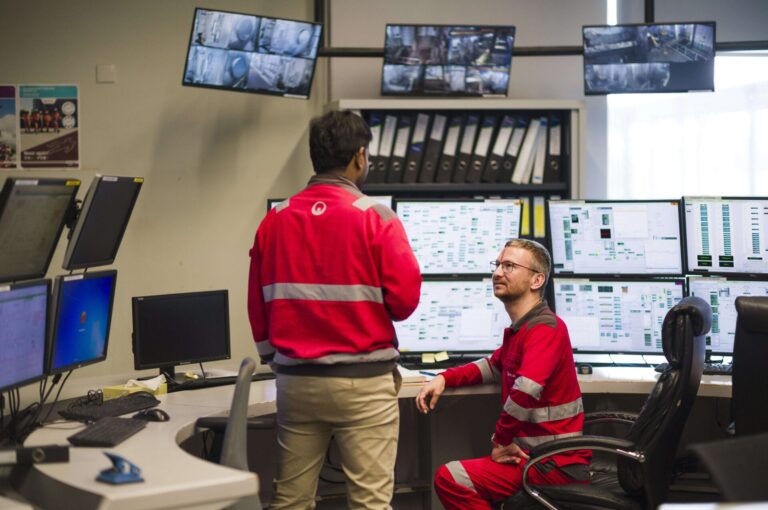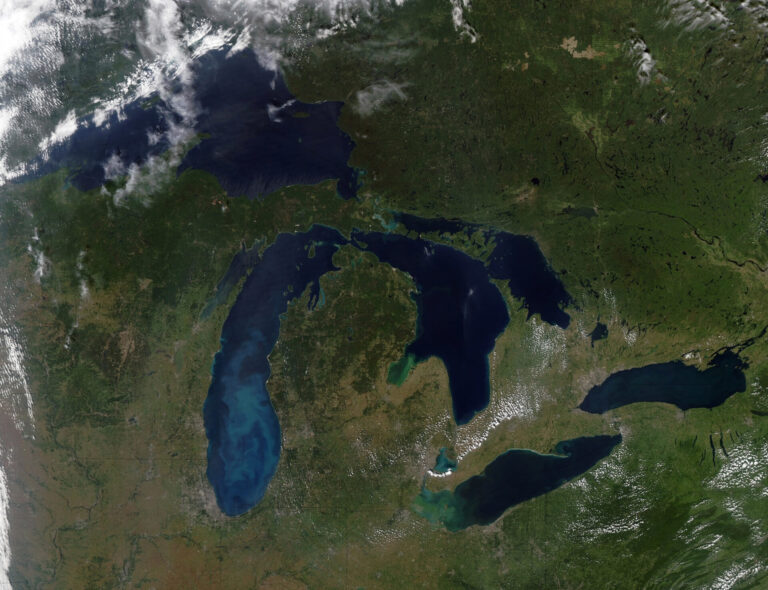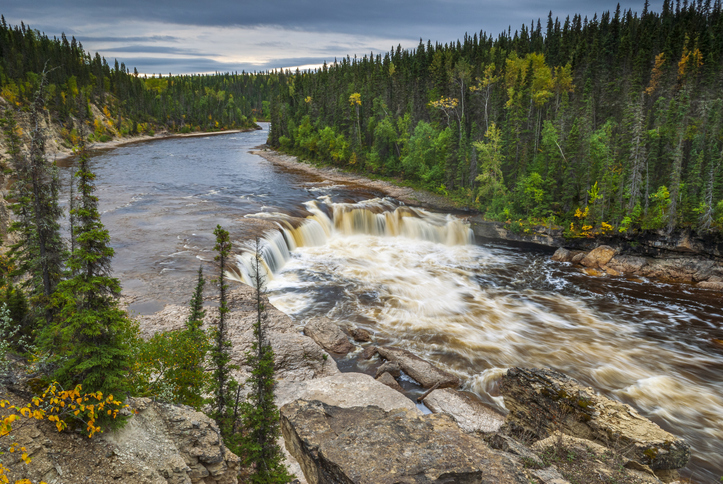Four of the five Great Lakes help to define the U.S.-Canada border; but what separates our two countries brings them together as well.
The Great Lakes lie at the heart of the U.S.—Canada trade relationship, the largest in history, with bilateral trade totalling nearly $670 billion a year. Having grown up in Buffalo, N.Y., and attended high school in Niagara Falls, Ont., I have a personal appreciation of how cross-border collaboration is crucial for jobs, trade, and investment in the Great Lakes region. Since I arrived in Toronto in 2015 as the U.S. Consul General, I have made it my priority, in coordination with the U.S. Embassy in Ottawa, to foster dialogue and collaboration between our countries on water issues.
Canada and the United States share a long, fruitful history of collaboration on water-related issues. The Boundary Waters Treaty, the Great Lakes Water Quality Agreement, and the Columbia River Treaty—to name a few—have provided binational coordination and cooperation on transboundary water. Our countries work closely together to protect water quality, and through the Great Lakes Water Quality Agreement, announced phosphorous reduction targets for Lake Erie earlier this year. The governments of Canada and the United States have committed to a shared vision of a healthy and prosperous Great Lakes region in which the waters of the Great Lakes, through sound management, use, and enjoyment, provide benefits to present and future generations.
Thinking more locally, the Toronto Consulate hosted a roundtable in April 2016 in partnership with the Government of Ontario, Cleantech North, Water Canada, GreenCentres Canada, and WaterTAP. Out of this event, we formed four working groups: 1) Promoting Swimming in the Great Lakes; 2) Sharing Phosphorus Management Best Practices; 3) Improving Climate Change Resiliency through Technology and Innovation; and 4) Reducing Over-salting for Watershed Health and Management. The Consulate team works closely with each of the working groups to convene stakeholders and partners.
The Great Lakes Swimming working group seeks to create a Great Lakes open data resource to educate the public about the health of Great Lakes beaches. The Great Lakes Phosphorus Levels working group will facilitate the sharing of best practices amongst stakeholders to reduce Lake Erie phosphorus loading and combat harmful algae blooms. The Improving Climate Change Resiliency through Technology and Innovation working group envisages an engineering design competition to support municipal efforts in reducing the impact of storm water and combined sewer overflows into waterways. The Reducing Winter Road Over-Salting for Watershed Health and Management working group has proposed an action plan to combat chloride contamination in the Great Lakes Basin. The plan would increase the general public’s awareness about road salt contamination of Great Lakes waters, and encourage businesses and municipalities to reduce road salt usage. Currently, the working groups are discussing timelines with partners, with the goal of reaching tangible outcomes in the next two years.
Sustaining freshwater and marine resources for future generations is a priority for the U.S. government. Joining 42 other locations around the world in coordination with the Secretary of State’s Office of Global Partnerships, in April 2016 Consulate General Toronto hosted the 2nd annual Fishackathon competition to create technologically innovative solutions to challenges facing the global fisheries supply chain. Connecting government, business, nonprofit, and academic partners, the weekend-long event took place at Ripley’s Aquarium in Toronto.
The Fishackathon brought together dozens of public and private stakeholders and software developers, designers, and coders who looked at challenges of fisheries sustainability in the Great Lakes and beyond. The global winner, from Taiwan, developed a low-cost water sensor that can detect the presence of an invasive Asian carp species in the Great Lakes region. Many of the teams continue to develop their solutions and are seeking funding to make the applications available to the people who can most benefit from them.
It’s through initiatives like this that Toronto Consulate can help forge connections between groups in Canada, U.S., and abroad that will serve to protect these globally-significant and precious water resources. I believe that, together with smart infrastructure investments and innovative water solutions, Ontario can support sustainability, while at the same time meeting climate targets and achieving economic growth. Our work on these important issues will be a legacy for our children and grandchildren, and one we are committed to fulfilling.
Juan Alsace is the Consul General at U.S. Consulate General in Toronto.










